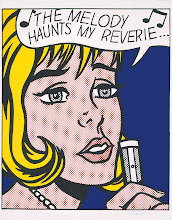Recent Posts
Friday, March 15, 2013
Novice Impressions (K-pop)
Posted by
I.L.
Eroticizing goofiness, the unique gift of such goddesses as Marilyn Monroe, Anna Faris, HyunA....
“Resistance for freedom of expression through music via sixth sense…. Their title track is an expression of the limitations of experiencing music with only five senses, and it asks people to feel it instead with their sixth sense.” --- promotional for Brown Eyed Girls’ Sixth Sense album.
K-pop fans seem to thoroughly embody the figure of the medieval exegete, combing through songs, albums, music videos, concerts, interviews, romanized lyrics, choreography tutorials, TV appearances, etc., within an endlessly expanding Borgesian media library. And the relationship between K-pop fans and their sacrosanct pop idols is the material obverse of the spiritual bond between devoted followers and their unseen God.
T-Ara appeals to me personally, since they sustain, for this day and age, what I love most about the girl group movement back in the sixties: the cherub-faced rebel girl melodramas of The Shangri-Las and the freewheeling and reckless bliss of The Tammy’s “Egyptian Shumba”.
“What I have in mind is the capacity of entertainment to present either complex or unpleasant feelings (e.g. involvement in personal or political events; jealousy, loss of love, defeat) in a way that makes them seem uncomplicated, direct and vivid, not ‘qualified’ or ‘ambiguous’ as day-to-day life makes them, and without intimations of self-deception and pretence.” (Richard Dyer, “Entertainment as Utopia”) “… [Walter] Benjamin was not much interested in theories or “ideas” which did not immediately assume the most precise outward shape possible.” (Hannah Arendt, “Introduction” to Illuminations) In its brevity and immediacy, pop song lyrics, instead of plumbing for “deep” meanings, seem to crystallize those “complex or unpleasant feelings” in “the most precise outward shape possible”, giving this popular form its special vicariousness. The best songs of T-Ara seem silly at first due to their repeated lyrics and linguistic nonsense, but these whirls of onomatopoeia vividly communicate something more dramatic and emotional. In “Bo Peep Bo Peep”, right before the girls are able to express their deep remorse and love to the man who’s sick of them, who’s leaving them, somehow God goes Tower-of-Babel on the world for a second time, and, instead of reciting the words which will make their man return, the girls go “Bo peep, bo peep, bo peep, oh”. The seeming meaninglessness of the lyrics reveals poetry (and T-Ara can do “serious” poetry too: “I hope my lips that recite this sad poem will be remembered in your black eyes” in “Day by Day”), but more importantly the constant repetition of the lyrics makes the song effortlessly danceable. Thus, pop song lyrics present the flashpoint of the poetic and kinesthetic.
T-Ara’s “Day by Day” would work perfectly with Philippe Garrel’s The Inner Scar.



0 comments:
Post a Comment